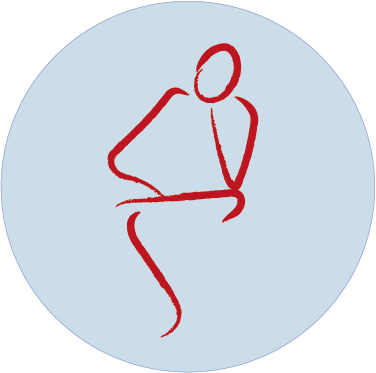Elders and mission
This part of the course explores what mission
means; how mission is actually God’s agenda and how the
spirit can support and define mission, for us as individuals, and for the wider church.
| Site: | URC Learning Hub |
| Course: | Exploring Eldership |
| Book: | Elders and mission |
| Printed by: | Guest user |
| Date: | Monday, 22 December 2025, 9:30 AM |
Table of contents
- 1. Introduction
- 2. Before you start
- 3. What does mission mean?
- 4. How do we understand the kind of mission God has for us?
- 5. Thinking about mission in a church context
- 6. Moving myself forward in mission
- 7. Moving my church forward in mission
- 8. Exploring options for my church
- 9. Review
- 10. Taking things further - new
1. Introduction
This section looks at an issue at the heart of the church – what do we mean by the phrase ‘the mission of the church’; and how each church within the URC has a mission – a vision of who and what they are. Fundamental to the idea of mission we will explore and reflect on these questions:
- what do we do, what activities are core to the church, and what talents, gifts and experience can our people offer?
- whom do we serve? Are there particular groups of people or particular needs, that we believe we are called to serve?
- how do we serve these groups and address those needs?
2. Before you start
Worship and mission are the core of our church life.
 Consider what your understanding of
‘mission’ is:
Consider what your understanding of
‘mission’ is:
- how do you see the mission of your local church as God’s agenda?
- how
often does the church reflect on the outcomes of its mission?
- has the mission
of the church changed with the different circumstances facing the communities
it serves? How?
3. What does mission mean?
Mission
is God’s agenda. It is what God wants us
to be involved with and DO! God
challenges each and every one of us consistently. With the help of the Holy Spirit, we are
collectively responsible for the delivery of God’s plan both locally and
further afield. Local churches are not
focused solely on the needs of members, but also on service within the wider
communities to which we belong.
The section of the United Reformed Church Manual that deals with Elders' states that among the various functions of the Elders' meeting it has a responsibility to:
‘… foster in the congregation concern for witness and service to the community [and] evangelism at home and abroad …’
from: The URC Manual Section B 2.(2)(i) page 4
Mission can, however, be considered at several levels:
- it may be personal mission that God calls individuals to address or,
- it may be that groups within the church are called to take forward a specific aspect of God’s agenda such as support for older people, delivery of food to the hungry, or support for asylum seekers. And,
- in some cases, mission may be taken on by the church as a whole body.
In every case, individual, group, or church-wide, mission results in action! To put this another way, mission is the purpose of the church and shapes its practice – how we do things. Fulfilling the mission that God has set is the way God’s kingdom of justice and joy will be realised.
Footnote - has your church, or Eldership, thought about doing the URC's discipleship development programme Stepwise as part of their mission work? You can find more details of what Stepwise offers by clicking on the 'Take a Look...' tab on your dashboard (find it next to the tab for Exploring Eldership when you log in to the Learning Hub).3.1. Thoughts about mission from some Elders
![]() Watch this video to see some Elders talking about what
mission means to them:
Watch this video to see some Elders talking about what
mission means to them:
Click this link for a transcript of the video
Click here to save this video as a file (opens in new window)
4. How do we understand the kind of mission God has for us?
Mission starts with prayer. Actively seek God’s direction in your prayers. Listen, reflect, talk with others around you on what they believe God is calling them to do and what they believe God is calling you to do.
And, remember, God may be calling
you to be part of a wide variety of groups in order to discern God’s will. It may be through secular groups as well as
church. Look at the example of food
banks!
That being said, if our mission is to be more than simply social action, there needs to be a willingness to acknowledge God’s leading. As the above quote from the manual that we looked in section 3 says, mission and witness go hand-in-hand or, as expressed in 1 Peter 3:15,
‘Always be ready to make your defence to anyone who demands from you an account of the hope that is in you.’ (NIV)
And we might extend this to explaining to others, whenever they ask us, why we serve them in the ways we do.
5. Thinking about mission in a church context
 What does mission mean in your church?
What does mission mean in your church?
What aspects of Christian life are important to you and other people within your Church? This exercise, taken from Holy Habits by Andrew Roberts, may be an effective way of discovering more:
- Look at the list of the holy habits of the early church below.
- Using a scale of 1-5 rate how important they feel within your church community now.
- learning
- worship
- fellowship
- prayer
- breaking bread/communion
- serving
- sharing resources
- making disciples
- eating together
6. Moving myself forward in mission
 Some suggestions to help you reflect and move forward:
Some suggestions to help you reflect and move forward:
- Know yourself – think through the relationship you have with God in your prayer and daily life
- Know your community – look to see where God is. Where is God now and what actions is the Holy Spirit leading? What do you and others see as the profile of the communities you serve and their needs? There are tools you can use as a church to explore this further and do a 'community audit'. The Stepwise stream 'Faith-filled Community' is all about getting to know, and working with, your local community. (You can find full details by clicking on the 'Take a Look...' tab on your Dashboard). Two of the community audit resources from that programme are also available on the resources page at the end of this section.
- Know that God will be with you – God will ensure you have the skills to see this mission through.
7. Moving my church forward in mission
 Look back at the notes you made about the list of the holy habits of the early church (on page 5).
Look back at the notes you made about the list of the holy habits of the early church (on page 5).
- what further thoughts have you had about mission in relation to your own church?
- would you add any further activities to the list? Why?
- are there any things on the list that don't seem as important as the others? Why?
8. Exploring options for my church
 Use your
reflections from the Holy Habits exercise to help you open your mind to things
that your church may not have done before. It may be that God is
challenging your church to take forward different kinds of ministry to meet particular
local needs. For example, is your church being called to take forward healing
ministry?
Use your
reflections from the Holy Habits exercise to help you open your mind to things
that your church may not have done before. It may be that God is
challenging your church to take forward different kinds of ministry to meet particular
local needs. For example, is your church being called to take forward healing
ministry?
- to be a ‘bread church’?
- to take forward a mission of prayer?
- to become a spiritual centre for the community?
- to be a centre for youth and children’s outreach?
- to take forward a Street Pastor role?
Because it ‘hasn’t been done here before’, does not mean God isn’t calling you to new ways of delivering mission. This sense of change has been evident during the pandemic of 2020. No longer able to meet, churches have embraced technology in an unprecedented way. Some churches have reported member numbers growing in terms of attendance at virtual services. Others have said there has been a significant increase in the role of prayer and spirituality. God will always move his mission forward – but we need to listen and act!
8.1. Elders talking about mission in practice
Click this link for a transcript of the video
Click here to save this video as a file (opens in new window)
9. Review
 Remember those notes that you made at the beginning of this module? Now would be a good time to review them and ask yourself:
Remember those notes that you made at the beginning of this module? Now would be a good time to review them and ask yourself:
- what have I found out in this module that I didn't know before?
- what else do I need, or want, to know?
then have a look at the next page.
10. Taking things further - new
![]() How can I find out more?
How can I find out more?

Neil Hudson (2012) – Imagine Church – Inter-Varsity Press
Dave Male (2016) – How to Pioneer: a five step guide to getting started – Church House Publishing
Mike Moynagh (2014) – Being Church, Doing Life - SPCK
Mark Greene (2014) – Fruitfulness on the Front Line: making a difference where you are - IVP